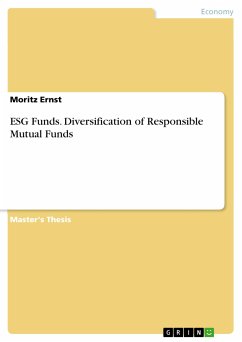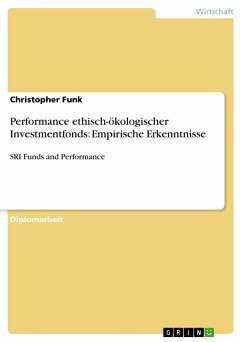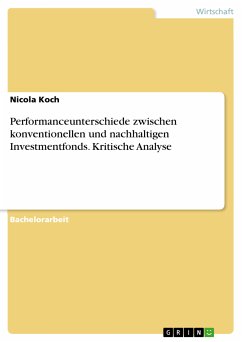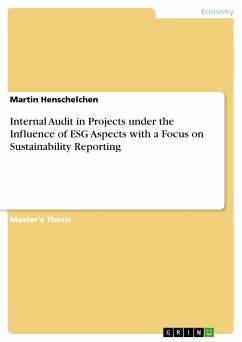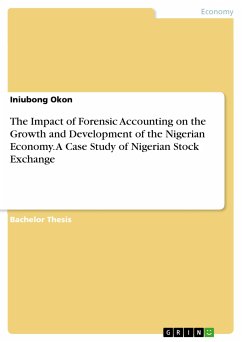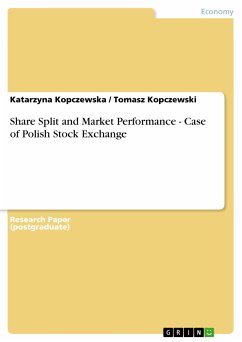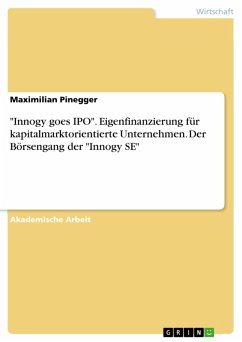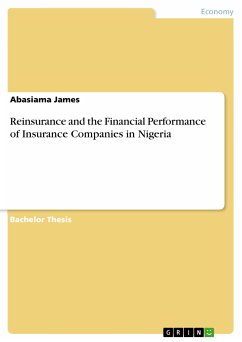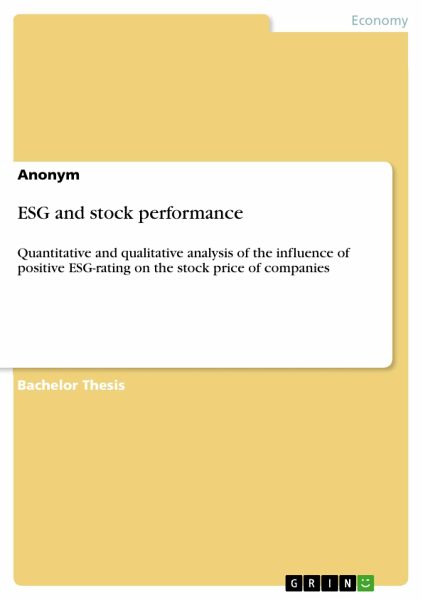
ESG and stock performance (eBook, PDF)
Quantitative and qualitative analysis of the influence of positive ESG-rating on the stock price of companies
Versandkostenfrei!
Sofort per Download lieferbar
Statt: 18,95 €**
16,99 €
inkl. MwSt. und vom Verlag festgesetzt.
**Preis der gedruckten Ausgabe (Broschiertes Buch)
Alle Infos zum eBook verschenkenWeitere Ausgaben:

PAYBACK Punkte
0 °P sammeln!
Bachelor Thesis from the year 2019 in the subject Business economics - Banking, Stock Exchanges, Insurance, Accounting, grade: 1,3, Christian-Albrechts-University of Kiel (Institute for Quantitative Business and Economics Research), language: English, abstract: This thesis analyzes the effect of positive ESG rating on stock performance. The goal is to provide an overview of the findings from the literature. Also, the thesis provides an empirical study on the ex-post stock performance of positively rated ESG firms as a contribution to the existing literature. However, a considerable issue is th...
Bachelor Thesis from the year 2019 in the subject Business economics - Banking, Stock Exchanges, Insurance, Accounting, grade: 1,3, Christian-Albrechts-University of Kiel (Institute for Quantitative Business and Economics Research), language: English, abstract: This thesis analyzes the effect of positive ESG rating on stock performance. The goal is to provide an overview of the findings from the literature. Also, the thesis provides an empirical study on the ex-post stock performance of positively rated ESG firms as a contribution to the existing literature. However, a considerable issue is that ESG definitions are heterogeneous because there is none general standard in terms of content and measurement. Therefore, the validity of ESG ratings from rating agencies is reviewed. The structure of this thesis is divided into four chapters. The first chapter introduces the concept of ESG and Corporate Social Responsibility (CSR) in detail. Secondly, ESG rating agencies are subject of debate. Mainly, the divergence in ratings among different rating agencies is analyzed because, for empirical studies, valid ratings are essential to obtain reliable results. The third chapter discusses the existing research papers regarding ESG¿s influence on stock performance. It mentions the common hypotheses in this area and examines the results from previous empirical studies. At last, an empirical study, which analyzes the performance of a portfolio consisting of high rated ESG stocks, is constructed. This portfolio is compared with the broad market performance and a portfolio of weak rated ESG stocks in terms of historical returns and the Sharpe ratio.
Dieser Download kann aus rechtlichen Gründen nur mit Rechnungsadresse in A, B, BG, CY, CZ, D, DK, EW, E, FIN, F, GR, HR, H, IRL, I, LT, L, LR, M, NL, PL, P, R, S, SLO, SK ausgeliefert werden.




